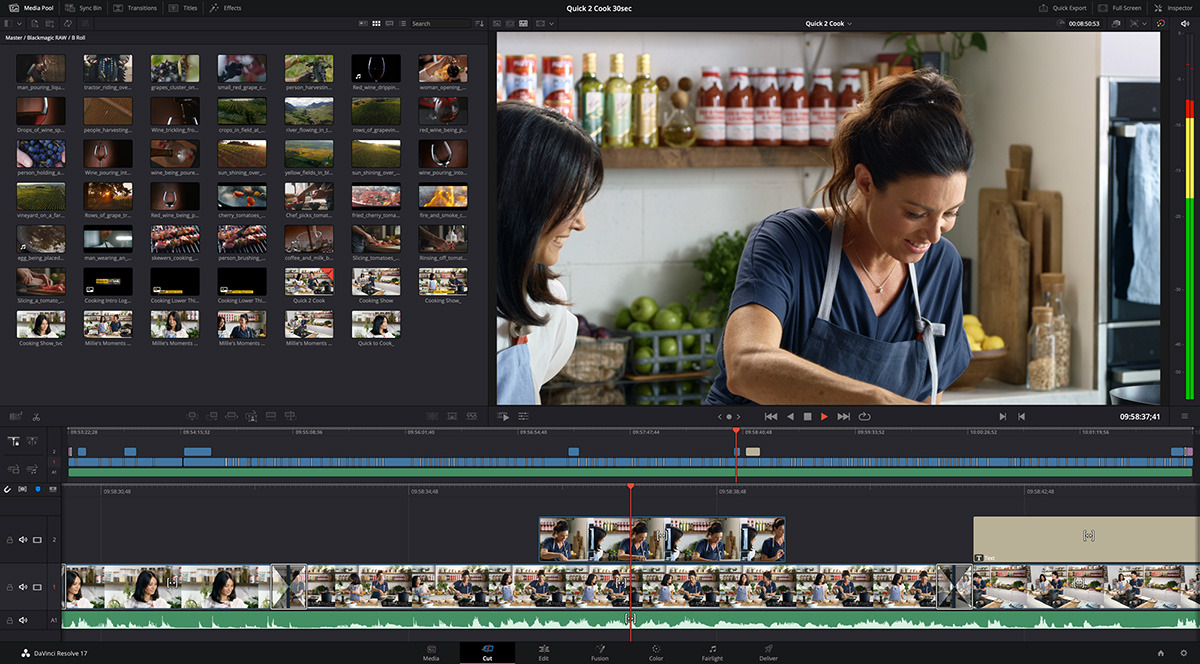Blackmagic Design on Monday unveiled the next-generation version of DaVinci Resolve, which brings a slew of new features and improvements to the video editing platform.
DaVinci Resolve 17 introduces 100 new features and 200 improvements, including major updates to the Fairlight audio workstation and color grading toolset alongside broader user interface upgrades.
In the color editing feature set, Resolve 17 brings new HDR color correction tools; mesh- and grid-based color warpers; improved color management and color space aware tools; and magic mask automatic object isolation powered by DaVinci's neural engine.
The audio-focused upgrades include contextual keyboard- and mouse-sensitive tools; a new Fairlight Audio Core that can support 2,000 tracks and auto-load balancing; automatic detection for beats, words, and sound effects; and a new FlexBus architecture for audio routing abilities.
There are also significant changes to the general UI of the system, including a suite of new tools and abilities on the cut and edit pages. According to Blackmagic Design, there are "thousands" of small improvements in the new version.
DaVinci Resolve also supports growing files in media pool; frame-based metadata for BRAW, ARRI, RED, Sony and EXR; and new workflow integration and third party encoder APIs. In DaVinci Resolve 17, the free version also adds new multi-user collaboration tools that were previously only available in DaVinci Resolve Studio.
"This is a massive update and it has amazing new technology and features for colorists, audio engineers, editors and visual effects artists," Blackmagic Design CEO Grant Petty said.
The new DaVinci Resolve, which requires macOS Catalina 10.15 or later, is currently available to download in beta testing from the company's website.
 Mike Peterson
Mike Peterson


 Marko Zivkovic
Marko Zivkovic
 Mike Wuerthele
Mike Wuerthele
 Christine McKee
Christine McKee
 Amber Neely
Amber Neely
 Wesley Hilliard
Wesley Hilliard

 William Gallagher
William Gallagher










6 Comments
I look forward to seeing a more comprehensive article that pits Resolve 17 against FCPX, giving special attention to performance. From what I understand, Resolve has surpassed FCPX in some areas when it comes to speed. Speed is key. A lot of folks rave about Adobe Premier's features, forgetting how dog slow it is on the Mac, and also forgetting that horrid subscription model. I'd like to see some Resolve and FCPX feature comparisons to see if Resolve takes the crown when it comes to ease of use. I've been a long time FCPX user and still love the software to this day, but I keep my eyes open as to what's trending or better, especially when updates to FCPX are slow in coming.
Resolve is killing Apple and Premiere in new user growth. Someone asked the other day in the Blender 3D group what video editing software they were using. It was 20 to 1 Davinci vs anything else. There strategy to give away most of the functionality for free in the regular edition and make it cross platform Mac/LInux/Windows makes it very easy for people to collaborate. And very Apple like they make money from hardware that well designed and premium priced. Final Cut X has some nice features and I enjoyed using it but no way do I want to go back to FCPX.